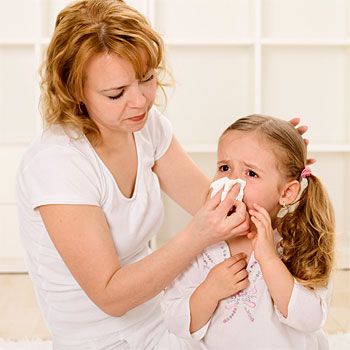
 Food allergies not found very common but they are increasing day by day without any known reason. People who are aware about such allergies also possess knowledge about the highly allergen foods. People in order to prevent their kids from child food allergies restrict their exposure to such foods, but the new guideline for allergies does not support the previous child care measures.
Food allergies not found very common but they are increasing day by day without any known reason. People who are aware about such allergies also possess knowledge about the highly allergen foods. People in order to prevent their kids from child food allergies restrict their exposure to such foods, but the new guideline for allergies does not support the previous child care measures.
New scientific information suggests that early introduction of highly allergenic foods to your kids such as milk, eggs, peanuts, shellfish and soy may reduce the risk for developing food allergies, according to latest recommendations from the American Academy of Allergy, Asthma & Immunology (AAAAI) what are published in Journal of Allergy and Clinical Immunology.
Theory Behind Exposing Babies to Allergens
Particular theory holds the view that if kids aren’t exposed to substances in highly allergenic foods early enough, body is more likely to view them as foreign invaders and attack leading your kids leading to an allergy.
– Supporter of such theory Katie Allen, a professor and an allergist at the Murdoch Children’s Research Institute at Royal Children’s Hospital Australia, through the Wall Street Journal ” The human body has to be trained in the first year of life”
– Another explanation for the rise in allergies and autoimmune disorders is the “hygiene hypothesis, “a theory that we’ve become so clean that immune system isn’t effectively challenged by germs during younger ages, making it more prone to overreacting to harmless substances, such as proteins in certain foods like eggs and peanuts.
How Science Supporting the New Guidelines?
There are numerous studies and scientific work available with proven result that food allergies may warn out by early exposure of kids toward highly allergen foods.
Following research primarily included in the research paper of new guideline for child allergy
– A small study found that delaying introduction of wheat did not protect against wheat allergy among kids it is necessary to prevent from the food allergy, expose kids with wheat before 6months of age. Another study found a significantly higher rate of developing wheat allergy in 5 year old kids where parents had delayed giving them wheat until after age 6 months. Therefore, no data supports the restrict exposure of wheat.
– Small amounts of cow’s milk, such as that in baked foods, and dairy products like cheese and yogurt are safe to introduce before the age one of your kids. One study found that early exposure of dairy products may protect against milk allergy.
– It is also found in researches that if children start eating cooked eggs when they are 4 to 6 months old, they are less likely to develop egg allergy, while babies who aren’t introduced to egg until they are more than 10 months old have a higher risk of developing egg allergy at age 5.
Tactics to Prevent child Food Allergy
Following are some tips to prevent child food allergies
– Exclusive breastfeeding for at least 4 and up to 6 months is recommended to prevent child food allergy.
– Pregnant and breastfeeding women don’t need to have a special diet to protect babies from food related allergies
Parents can introduce foods including highly allergenic at 4 to 6 months of age.
Click HERE to read more from Fashion Central.

Be the first to comment